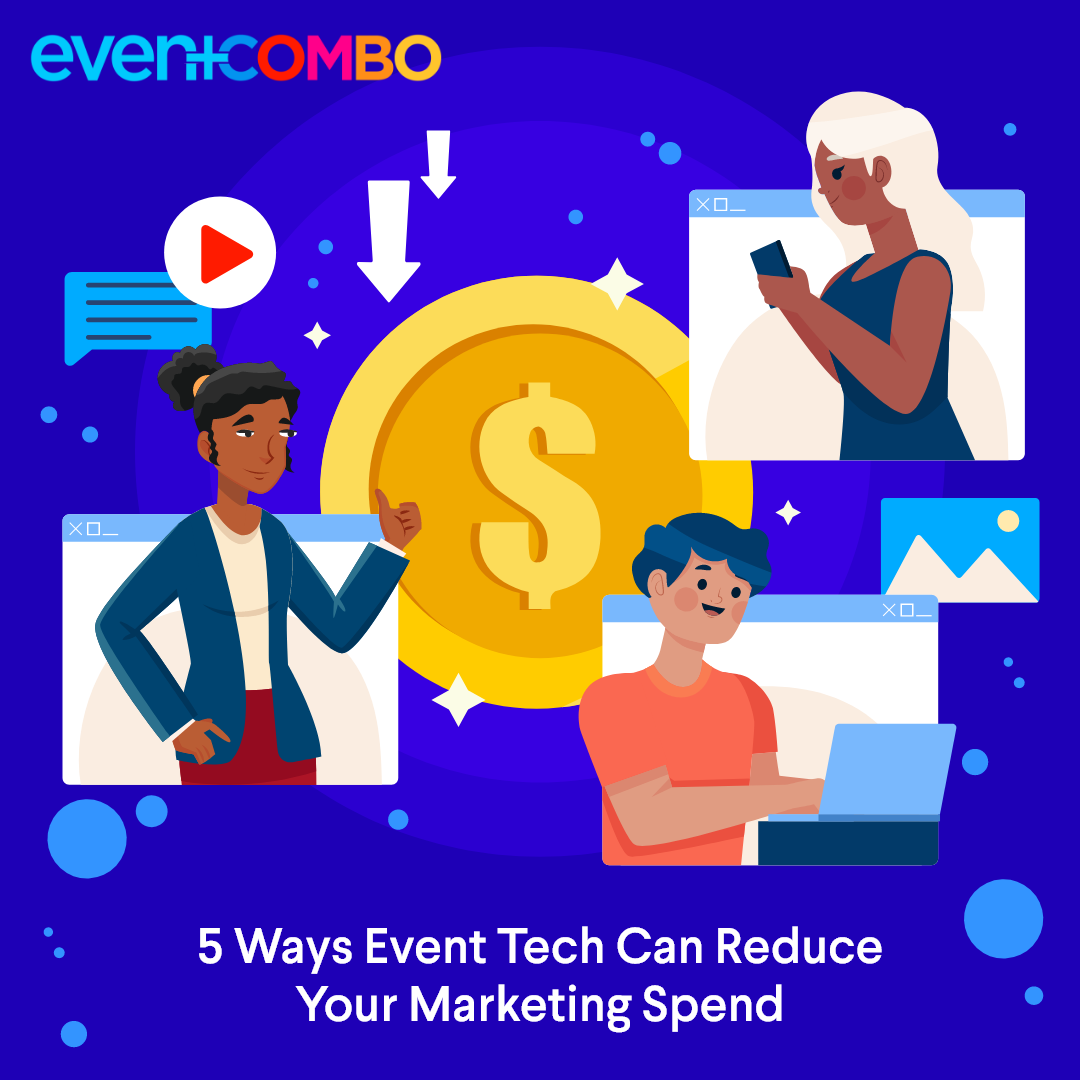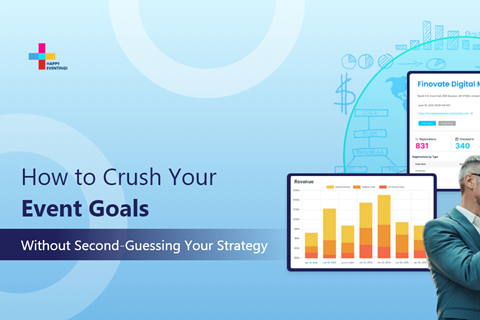

As an event manager, taking care of finances, keeping close tabs on the marketing spend, and, at the same time, delivering outstanding results can be challenging. To execute a successful virtual event, a lot of planning and strategizing has to go behind it. Be it an online trade show, a webinar, or a product launch event, a great blend of strategy and tech tools runs an event seamlessly. We have put together a list of some excellent tech tools that enable event planners to stay on top of their game, save more, and manage the business and digital marketing budget more efficiently.
1. Utilize free event tech tools like:
a. Google Analytics: Google Analytics enables an event professional to evaluate if their marketing efforts are giving back any results or not. It helps measure the success of your campaigns, websites, etc. It's important to keep a tab on your delegates, in order to run a successful marketing event. Google Analytics gives in-depth insights about your visitors, including where they are from, their demographics, psychographics, age group, gender, and so much more.
Interesting fact: According to Web Technology Surveys, Google Analytics is used by 86.2% of all the websites whose traffic analysis tools are known. This is 56.5% of all websites.
With the help of analytics, you can now know what brings your visitors to your website - is it the search engines, referrals from other websites, or social media. Referral traffic, in fact, is an efficient parameter for measuring the success of an advertising campaign. You can also identify which of your pages are most popular, which page is attracting more traffic, and which are least popular. Also, you can track whether people are getting themselves registered or are abandoning the process mid-way. Overall, it gives an in-depth analysis of what is working in your favor and what is not.
b. Trello: Trello is a free (along with a paid version) project management and team organization tool. It looks like sticky notes pasted on top of a board. All the projects and tasks can be organized easily, in addition to tracking their status and progress, assigning deadlines, flagging people for their actions, monitoring the ownership, and keeping an eye on the overall workflow.
What distinguishes Trello from other project management tools is its simple layout. Anyone can get their hands on the application within minutes, which makes it an effective tool to keep things on track for event management purposes too.
2. Save time by automating key tasks (or repetitive tasks)
One thing any event planner runs short of while planning an event is the time! Throughout the event planning and execution process, one issue they encounter is the need to invest a lot of time in doing repetitive tasks like confirming the bookings, providing customer service, answering the FAQs, scheduling registration, sending confirmation emails, and much more. Luckily, there are some great virtual and hybrid event management platforms available which can easily help event planners streamline all the tasks effortlessly on a single platform.
It is always wise to invest in event tech platforms to automate many of these tiring and mundane tasks, so you can focus more on other important aspects of your event.
Pro tip: Eventcombo is one such platform that offers unlimited benefits, along with amazing tools to execute your next virtual and hybrid events smoothly and without any hassles!
Eventcombo’s latest offering Community™ by Eventcombo provides one-on-one networking opportunities among event attendees and organizers. This is a great way of staying connected with fellow event attendees and making lasting connections. Book a demo right away.
3. Use the most suitable event management platform for better ROI
There is a plethora of event management platforms and software out there. At times it is difficult to choose one among so many. Some platforms offer a great many features while others provide something more basic but far more useful than other fancy tools. Therefore, thorough research is important to analyze what your needs are and how you must go about them.
There are a couple of points to keep in mind before choosing an event tech platform:
Interesting fact: According to Maklectic, attendee satisfaction is considered a success factor by 85% of marketers.
Pro tip: Event tech platforms like Eventcombo offer three types of demos:
4. Choose an all-in-one solution to keep it budget-friendly
One of the most important things to keep in mind while choosing an event tech platform is to make sure they are providing both virtual and in-person capabilities. If you are hosting a hybrid event and you have opted for different service providers for in-person and virtual segments, the overall event experience might suffer. Event tech platforms that specialize in delivering both types of services ensure a better experience of accommodating two sets of audiences (which can be very diverse). It is also economical to choose one service provider rather than investing in multiple providers, which can almost double your event cost.
Interesting fact: According to a survey by Marklectic, 78% of businesses that use a comprehensive event application agree that it contributes to a positive event ROI.
According to Bizzabo, 68% of event professionals look for an all-in-one event solution that can easily support both in-person and virtual events.
Pro tip: Eventcombo has been in the business of hosting in-person events since 2015. Eventually, they also ventured into hybrid events, marked by the launch of one of their most successful products Fireworks™ by Eventcombo in 2020.
5. Event tech platforms that are integrating with NFTs, metaverse, and crypto are the new face of virtual events
The world has been investing in virtual space more than ever before. Virtual events have gained a lot of popularity and the next step further into the world of virtual and hybrid events involves NFTs, metaverse and crypto. Within the metaverse event, attendees can now reinvent their experience of the virtual world, buy stuff through NFTs, and do so much more. It is a great way to network in real-time with real people, in the form of avatars, and also through AR/VR technologies. It is better to invest in such event tech platforms which are slowly evolving, using the latest tools and technologies. Since the new players might be short on budget, an established player, already having experience of virtual and hybrid events, and furthermore, of NFT, crypto, and metaverse can incorporate all these features with only a little price fluctuation.
The above-mentioned ways of reducing your marketing spend can definitely be the game-changer for your next virtual, hybrid, or in-person event! Eventcombo makes your experience smooth and effortless.
Check out our blog post to know what are some of the absolutely important features that a good event tech platform must have.

The economics of trade shows have shifted. Yet the ROI conversation is still murky. As trade show costs rise, budgets aren't keeping pace, creating pressure on event organizers.

If you’re an event organizer, you know the drill. Event goals often sound fantastic in the initial brainstorming session, but when it’s time for execution, they can easily collapse.

Let’s be honest: there was a time when great content and a catchy title were enough to pull in a crowd. But today, events have become a go-to marketing play, and now, everyone’s in the game.